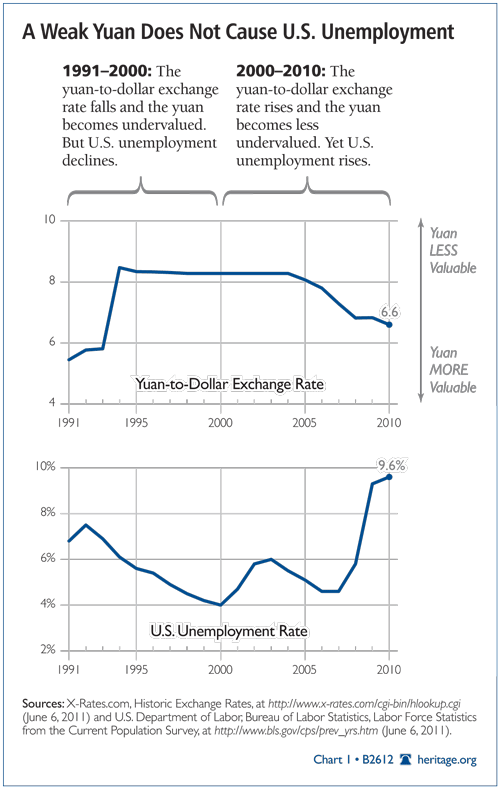The House Ways and Means Committee will hold a hearing tomorrow on America’s economic relations with China. This is easier said than done—there’s a lot of ground to cover.
One topic gets the most attention, of course: China’s currency policy. We should all hope that the committee can move beyond currency. More than enough time has been wasted on this. There is no real relationship between the exchange rate and our unemployment rate.
And there are plenty of other things to talk about. On China’s side, there are a number of problems that dwarf currency. The most fundamental is Chinese subsidies to state-owned or state-controlled enterprises. These include statutory requirements that most major sectors of the PRC’s economy be dominated by the state, which blocks provision of goods and services by American companies—everything from autos to telecom.
In addition, the subsidies are funded by indirect taxes on Chinese consumers and enable excessive investment by state firms. Too little consumption and too much investment is the PRC’s large contribution to imbalances that have threatened and continue to threaten the global economic system.
The United States Trade Representative just alerted the World Trade Organization to almost 200 subsidies that China should have declared but hasn’t. This is a belated but welcome step forward, and the Ways and Means Committee should encourage more action along these lines.
Another fundamental issue is intellectual property. The PRC understandably wants and expects the U.S. to act as the global trade leader, accepting China’s comparative advantage in assembly of many consumer goods. However, Beijing often shrugs off the American comparative advantage in intellectual property as something China can’t protect right now. It is harder to see the way forward in intellectual property than in subsidies, but the U.S. should continue to press.
Another matter is increasing Chinese warping of global energy markets through its domestic policies. And there are more.
Finally, the Ways and Means Committee is a good place to acknowledge the biggest American distortion of U.S.–China economics: our huge budget deficit. Among other things, the budget deficit draws Chinese money to U.S. government bonds that could be spent on American assets, goods, and services.
The hearing can’t solve these problems, naturally. But it could be a step in the right direction. We’ve been obsessed with currency for years. The result: a 25 percent yuan appreciation—which is what we say we want—and much higher unemployment. Subsidies are a much more important issue, as is intellectual property. Ways and Means can help chart a way forward for more effective China policy.






























